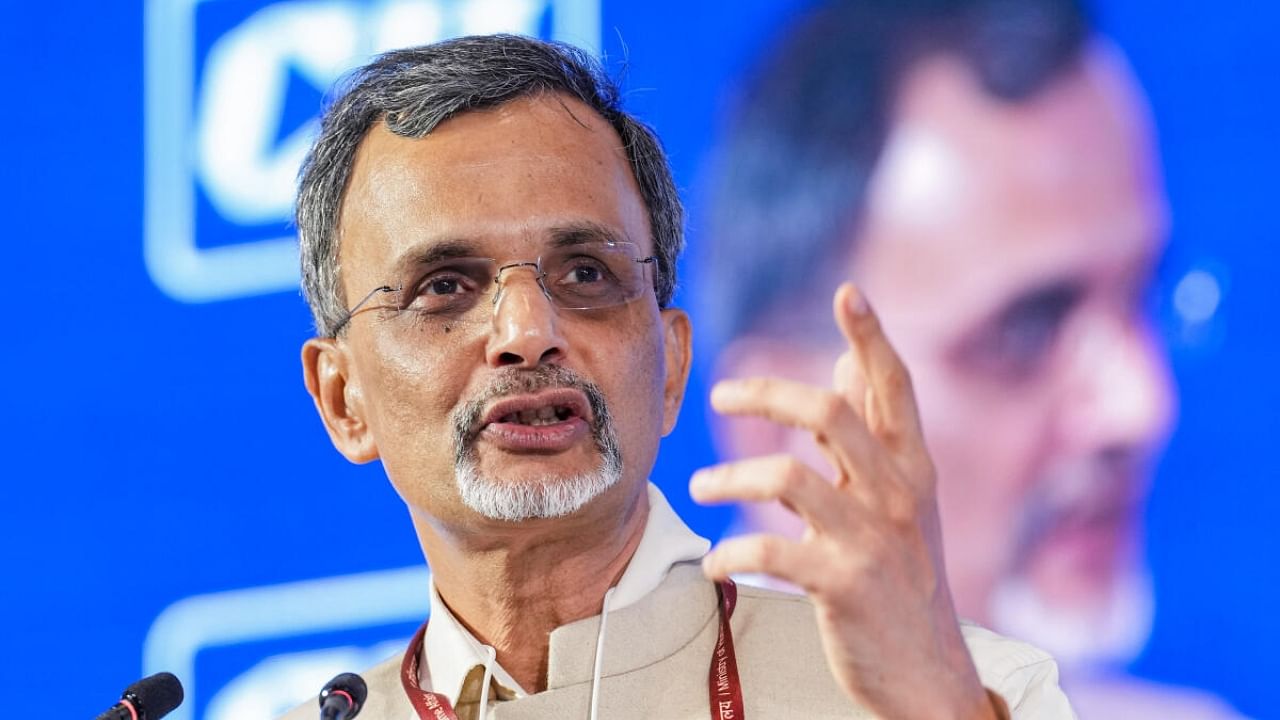
Chief Economic Advisor to the Government of India V Anantha Nageswaran.
Credit: PTI Photo
New Delhi: Sovereign credit rating methodology used by top global agencies Fitch, Moody’s, and Standard & Poor’s are opaque and fail to accurately depict the underlying economic fundamentals of the Indian economy, India’s Chief Economic Adviser’s office has said, making a strong pitch for rating upgrade.
In a report released on Thursday, the CEA’s office noted that India’s sovereign ratings remained static at BBB- during the last 15 years, despite it climbing the ladders from the 12th largest economy in the world in 2008 to the 5th largest in 2023, with the second-highest growth rate recorded during the period among all the comparator economies.
BBB- rating by Fitch and Standard & Poor’s is considered the lowest investment grade by market participants. The equivalent rating by Moody’s is Baa3.
In preface to a report titled ‘Re-examining Narratives – a Collection of Essays’ Chief Economic Adviser V Anantha Nageswaran and senior adviser Rajiv Mishra said that “these ratings are important as they are binding constraints for developing economies, hindering their ability to attract necessary funds”.
The report underscores the urgency for adequate reforms in the credit rating system to ensure that the ratings reflect a developing economy's true willingness to pay. Such reforms will enhance the developing countries' ability to raise long-term financial resources from both domestic and international markets by significantly reducing funding costs and, hence, supporting them in their development goals.
“Just as countries are obligated to be as transparent as possible with the rating agencies to be viewed favourably, the obligation must extend the other way around, too,” the report said.
The report further noted that credit rating agencies tend to have a detailed database of best practices from around the world, which they apparently rely upon to form their judgements. “This knowledge must be shared with the countries they rate so that appropriate action can be taken on a sovereign's part to improve its creditworthiness,” it said.
Referring to a significant improvement in India’s ranking in Ease of Doing Business, the CEA’s office noted that two-way transparency and consultation played a key role in it.
India jumped 79 places in a span of 6 years between 2014 and 2020 in the Ease of Doing Business ranking by the World Bank. India’s ranking improved to 63rd position in ‘World Bank's Ease of Doing Business Ranking 2020’ from 142nd position in 2014.
Through periodic discussions and engagement with the World Bank regarding its methodology and measuring processes, the Indian Government was able to identify critical areas in need of reform and address them in a timely manner, the report noted.
The report underlined that similar engagements with credit rating agencies can help improve India’s sovereign ratings. “Transparency between the parties can also reduce the uncertainties the rating agencies face, allowing them to assess the creditworthiness of a country more accurately,” it added.